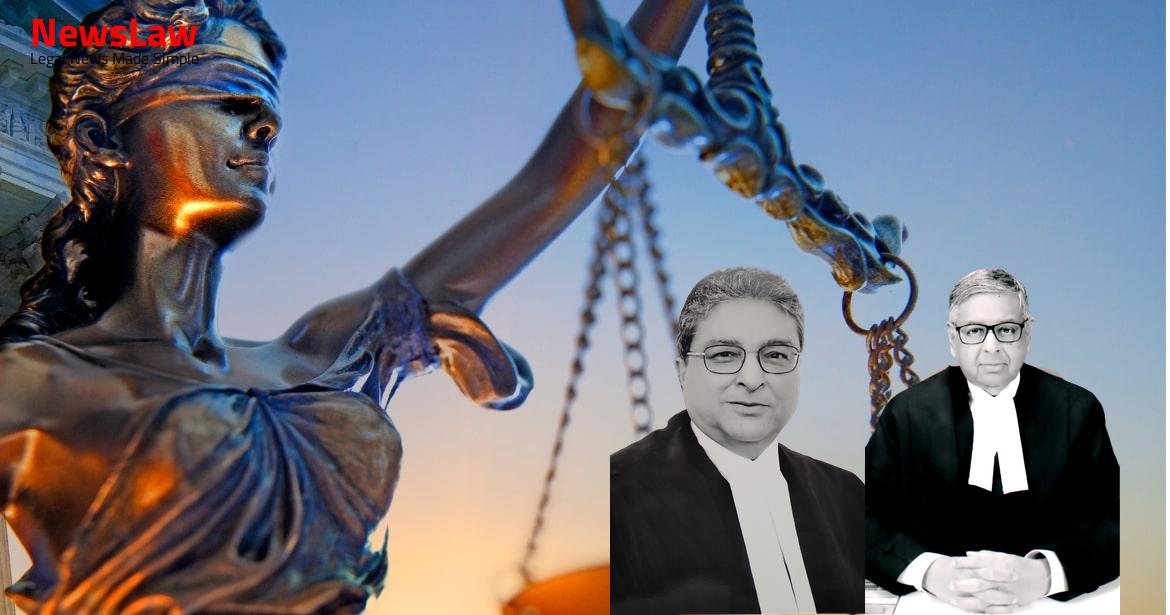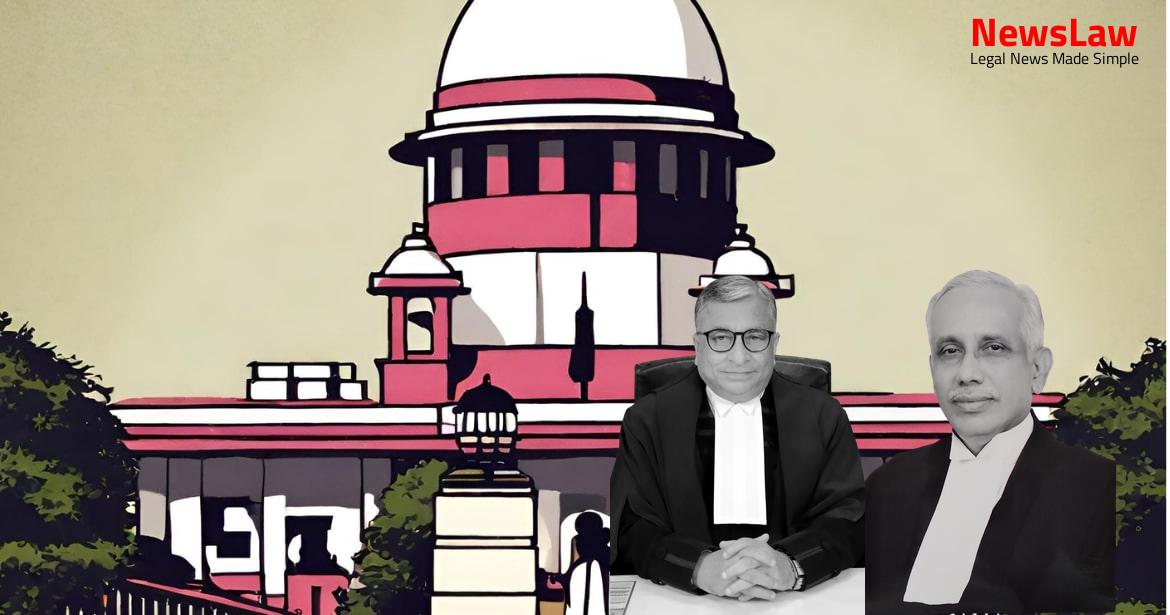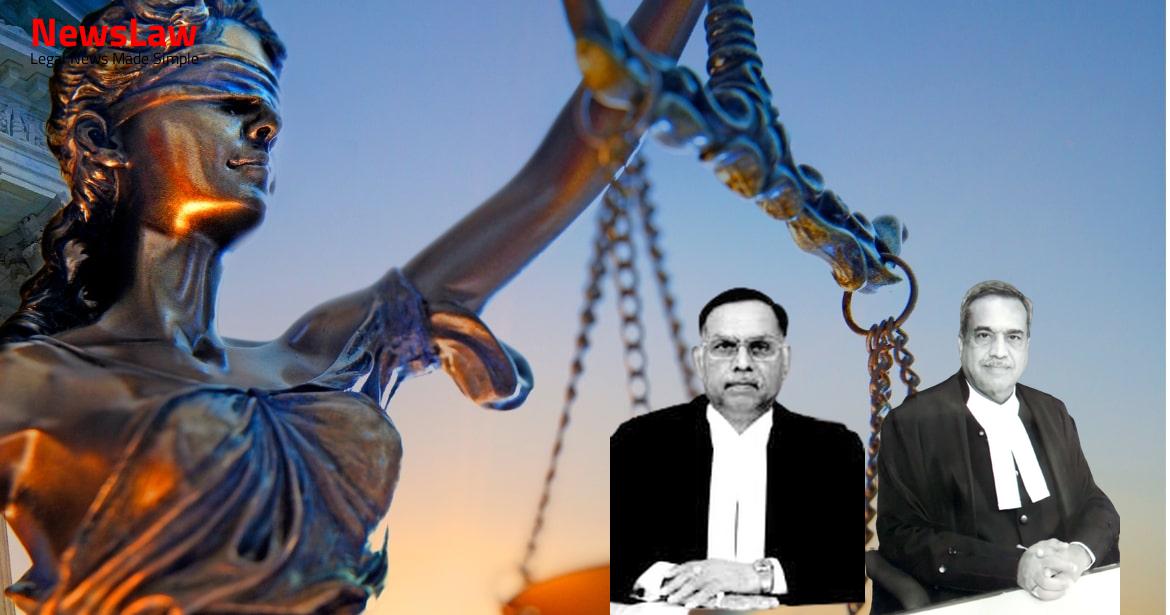Explore the detailed legal analysis conducted by the High Court in a recent case involving the grant of bail in a grave offence scenario. The court’s thorough examination of multiple factors, including the seriousness of the offence, precedent cases, and post-release conduct, provides valuable insights into the decision-making process in such critical situations. Dive into the nuanced legal reasoning behind the court’s decision and the principles guiding bail grants in serious offences.
Facts
- The High Court has allowed the bail application of the respondent no. 2
- The complainant has filed an appeal through a special leave petition questioning the legality of the bail granted to the respondent no. 2
- The respondent no. 2, Mahesh Kumar, is accused of an offence under Section 302 of the Indian Penal Code, 1860
- The deceased, who was the brother of the complainant/appellant, suffered fatal injuries and died between the night of 16/17.06.2020
- The bail application of the respondent no. 2 was initially rejected by the Trial Court on two occasions
Also Read: Court’s Jurisdiction in Re-appraising Arbitrator’s Findings
Arguments
- Mr. Shishir Mathur, counsel for respondent no. 2, argued that the High Court considered discrepancies in the FIR and complainant’s statement before granting bail.
- The High Court also reviewed CCTV footage before making the bail decision.
- Arguments from the appellant’s counsel included a history of rivalry between the deceased and respondent no. 2, pointing to a prior scuffle and subsequent hospital incident.
- Appellant claimed respondent no. 2’s involvement in the deceased’s fatal injuries, citing call records and rejected bail applications.
- Allegations of threats against the deceased’s family by respondent no. 2 post-bail were raised.
- State counsel supported the appellant, emphasizing the need for detailed reasons when granting bail after previous rejections by the Trial Court.
- Charges under Section 302 read with Section 120B of IPC were framed against respondent no. 2.
- ]
- The Respondent argued that the Petitioner’s detention was necessary in order to prevent further crimes
- The Respondent submitted that the Petitioner posed a flight risk and therefore should not be granted bail
- It was contended by the Respondent that the Petitioner’s release could jeopardize the ongoing investigation
Also Read: Contrary Directions in Issuance of Letter of Intent
Analysis
- The nature of offence is grave involving Section 302 of IPC.
- The High Court’s decision to grant bail without providing valid reasons is questionable.
- Previous rejection orders by the Court of Session were overlooked when granting bail.
- Several decisions of the Court discussing the principles guiding bail were considered.
- Detailed phone call records between accused no. 2 and accused no. 1 are on record.
- Considering the trial would take time to conclude, keeping the petitioner behind bars was deemed necessary.
- Gravity of the offence alleged is a crucial factor in considering the grant of bail.
- Post-release conduct of the accused was taken into account in Amarmani Tripathi’s case.
- In Prabhakar Tewari, the High Court’s bail order was upheld as there was no error in the exercise of discretion.
- A similar view was taken in Brijmani Devi vs Pappu Kumar & Anr.
- In X vs State of Telangana, the issue was addressed regarding considering bail at the appellate stage.
- Judgments in Prabhakar Tewari vs State of Uttar Pradesh and State of U.P. through CBI vs Amarmani Tripathi focused on High Court bail orders being reviewed by the Court at the appellate stage.
- Jaibunisha vs Meharban & Anr. and Sabir vs Bhoora & Nadeem & Anr. emphasized the need for bail orders in serious offences to be supported by reasoning.
- In Ram Govind Upadhyay vs Sudarshan Singh and Ors., the Court should be satisfied of a prima facie case at the initial stage without a detailed examination of evidence.
- High Court failed to consider voluminous materials collected by investigating agency
- Seriousness of the offense and conduct of respondent no. 2 were taken into consideration
- Respondent no. 2 was in prison for only about four months before being granted bail
- Allegations of threats made on behalf of respondent no. 2 to the deceased’s family
- Various authorities cited by counsel were considered, leading to the setting aside of the bail order
Also Read: Application for Stay in Civil Suit Rejected: Court’s Legal Analysis
Decision
- The appeal is allowed in terms of the signed reportable order
- The order of the High Court dated 17.11.2020 is quashed
- No orders as to costs
Case Title: PURAN MAL Vs. STATE OF HARYANA (2022 INSC 297)
Case Number: Crl.A. No.-000398-000398 / 2022



